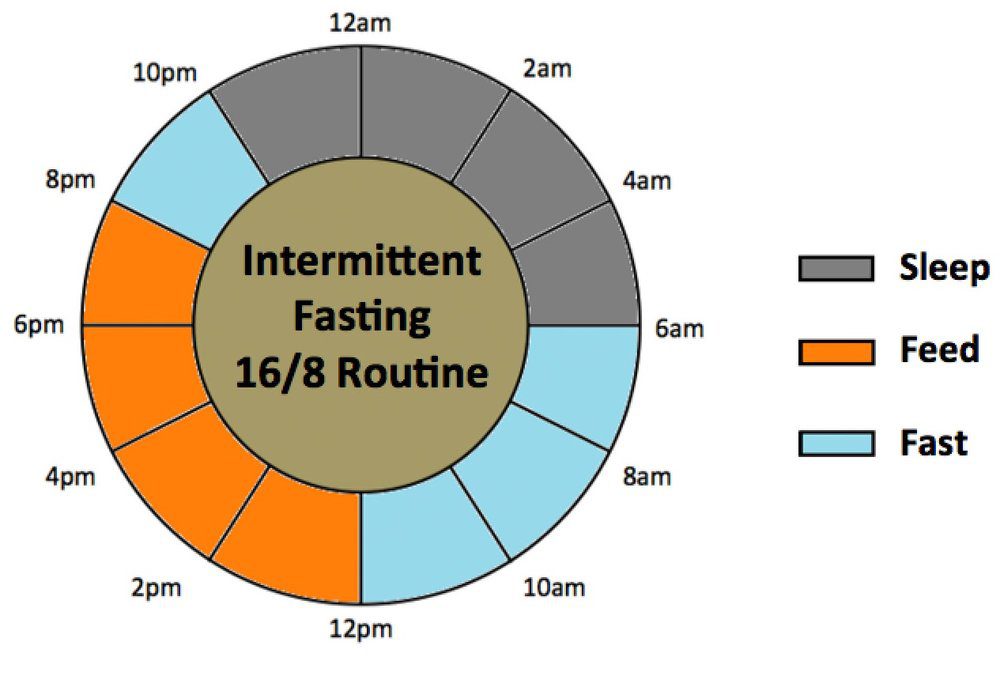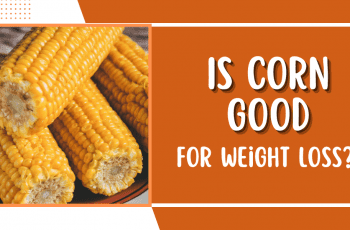Intermittent fasting can be a great way to help improve your health, but there are some things you need to keep in mind. One question that often comes up is will chewing gum break your fast? This post will look at the research and advise on whether chewing gum can break a fast.
What is Intermittent Fasting 16/8?
Intermittent fasting is a method of eating that cycles between periods of fasting and eating window. There are various types of intermittent fasting, but the most common is 16/8. This involves fasting for 16 hours and ingesting within an 8-hour window. So, for example, you might eat from 10 am to 6 pm and then fast from 6 pm to 10 am the next day. The 16/8 method is one of the most popular because it’s easy to stick to and doesn’t require drastic changes to your diet.
If you’re thinking of trying intermittent fasting, then read on to find out everything you need to know about the 16/8 method.

How Does Intermittent Fasting Work?
Intermittent fasting dramatically reduces the amount of time you spend ingesting each day. This gives your body a chance to rest, repair, and burn through stored energy (fat). When done correctly, intermittent fasting can help you lose weight, improve mental clarity, and boost high energy levels.
There are two main ways to do intermittent fasting: whole-day fasting and time-restricted fasting. Whole-day fasting involves going without food for 24 hours, typically from dinner one night until dinner the next night. Time-restricted fasting is what we’re interested in here—this is where you eat all of your meals within a certain window of time each day. The most popular form of time-restricted fasting is the 16/8 method.

What Are the Benefits of Intermittent Fasting 16/8?
Weight Loss
One of the most popular reasons people start intermittent fasting is for weight loss. When you are in a calorie deficit, your body will begin to burn stored body fat for energy. Fasting for 16 hours ensures you are in a calorie deficit and forces your body to burn stored body fat.
Improved Mental Clarity
When you are not focused on food, your brain can focus on other things. This can lead to improved mental clarity and concentration. For example, when you are not constantly thinking about food, you can focus on work, studies, or creative pursuits.
Decreased Risk of Disease
Intermittent fasting has decreased the risk of chronic diseases such as heart disease, diabetes, and cancer. This is likely because intermittent fasting reduces inflammation in the body and helps to improve insulin sensitivity.
Improved Insulin Sensitivity
Intermittent fasting has also been shown to improve insulin sensitivity. This is important because insulin resistance is a significant risk factor for type 2 diabetes. In one study, male participants who followed an alternate-day fasting protocol saw improvements in insulin response after only eight weeks.
Another study found that obese women who did intermittent fasting for 24 weeks improved insulin response more than those who did not fast. These studies suggest intermittent fasting can benefit people with insulin resistance or type 2 diabetes.

Does Gum Break a Fast
During a fast, you’re abstaining from food and drink. But what many people don’t realize is that chewing gum also counts as eating because chewing gum can be one way to curb hunger. That’s because when you chew gum, your body produces saliva, which contains digestive enzymes. These enzymes begin breaking down the gum, which means your body is digesting it. And since the gum doesn’t have any calories or nutrients, this can throw off your fast.
In addition, chewing gum can also trigger cravings. Chewing is often associated with eating, so your brain may start to think that you’re hungry even if you’re not. This can lead to unnecessary snacking and then gain weight.

When Can You Chew Gum While Intermittent Fasting?
So when is it okay to chew gum while intermittent fasting? If you must chew gum, do so after you’ve broken your fast for the day. That way, you will avoid accidentally consuming calories or triggering cravings. In addition, make sure to choose sugar-free gum that doesn’t contain artificial sweeteners, non nutritive sweeteners, and sugar alcohols. These can also screw up your fast, causing insulin levels to spike and raising blood sugar levels.
Does Gum Contains Calories?
Yes, gum does contain calories. Gum is made up of two things: sugar and latex. Sugar is a carbohydrate, and carbohydrates contain four calories per gram. So a gum stick containing 2 grams of sugar has eight calories from sugar. The other component of gum, latex, doesn’t have any calories.

How Many Calories Are in Different Flavors of Gum?
The calorie content of gum varies depending on the flavor. For instance, a stick of mint-flavored gum has fewer calories than a stick of cinnamon-flavored gum. This is because different flavors use different types and amounts of natural or artificial sweeteners. However, as a general rule, the more sugar a gum has, the more calories it will have.
Here are the calorie counts for some popular flavors of gum:
* Mint: 4 calories per stick
* Cinnamon: 10 calories per stick
* Bubblegum: 12 calories per stick
* Fruit: 14 calories per stick
As you can see, chewing fruit-flavored gum is like eating two pieces of candy! So if you’re watching your weight, it’s best to stick with mint or cinnamon-flavored gum.

Does Sugar-free Gum Break Fast?
According to most experts, chewing sugar-free gum shouldn’t break your fast as long as the gum doesn’t contain any calories, sugar, or carbs.
However, there is one slight exception to this rule. Suppose you are using sugar-free gum that contains xylitol. In that case, it technically could break your fast because xylitol is a type of sugar alcohol that your body can metabolize for energy. Therefore, if you are using a sugar-free gum containing xylitol, I recommend not chewing sugar-free gum during your fasting period. Other than that, feel free to chew away!
Will Chewing Gum Help Me Get Out of Ketosis?
People think chewing gum might help them get out of ketosis because when you chew gum, your body releases insulin. Insulin is a hormone that helps your body store energy. When your body doesn’t have enough energy, it will start breaking down stored fat for fuel. This process is called ketosis.
If chewing gum can raise your insulin levels, it stands to reason that it could also help you get out of ketosis. However, there is no scientific evidence to support this claim. One study found that chewing gum did not affect insulin levels at all.
So, if you’re considering using chewing gum to get out of ketosis, I would advise against it. There’s no evidence to suggest that it will work, and you might waste your time (and money).

What Can You Have During Intermittent Fasting?
During the fasting periods of intermittent fasting, you are not allowed to eat any solid foods. However, there are a few exceptions. For example, drink sparkling water, green tea, black coffee, unsweetened tea, and other calorie-free beverages. You can also consume small amounts of bone broth or bouillon.
Having a small amount of honey or 100% fruit juice is okay if you are feeling low on energy or lightheaded during your fast. These options will help keep your blood glucose levels stable so you can successfully make it through your fast.
For the most part, you should stick to water, coffee, tea, and other calorie-free beverages during your fasting periods. This will help your body reap the most benefits from intermittent fasting.

Final Thoughts
In conclusion, gum can be a great way to freshen your breath and pass the time during intermittent fasting. Pay attention to the calorie count of different gum flavors, and avoid using sugar-free gums with xylitol if you want to stay in ketosis. Other than that, have fun chewing away! Please don’t overdo it, as too much gum can cause stomach discomfort.
Frequently Asked Questions
Does gum spike insulin?
The study found that chewing sugarless gum was an effective way for obese patients to control their energy intake and decrease weight without changing calorie consumption.
Does gum break ketosis?
Chewing gum will not kick you out of ketosis, but the sugar-free gum must have few carbs and no net amount. One stick usually ranges from 1g – 2g per piece (depending on size), which should be enough for your needs; however, excessive chewing can disrupt keto stability if done too often or in large quantities.
Does sugar-free gum break autophagy?
The study found that fasting for metabolic health and weight loss is successful with regular gum breaks but not sugar-free ones.
Will a mint break my fast?
Gums and mints contain sugar which your body will convert into energy for use during a fast. Even items that are supposedly “sugar-free” gummy bears have erythritol or xylitol in them, both of which can stimulate the digestive system even if they don’t get fully metabolized by our bodies.




